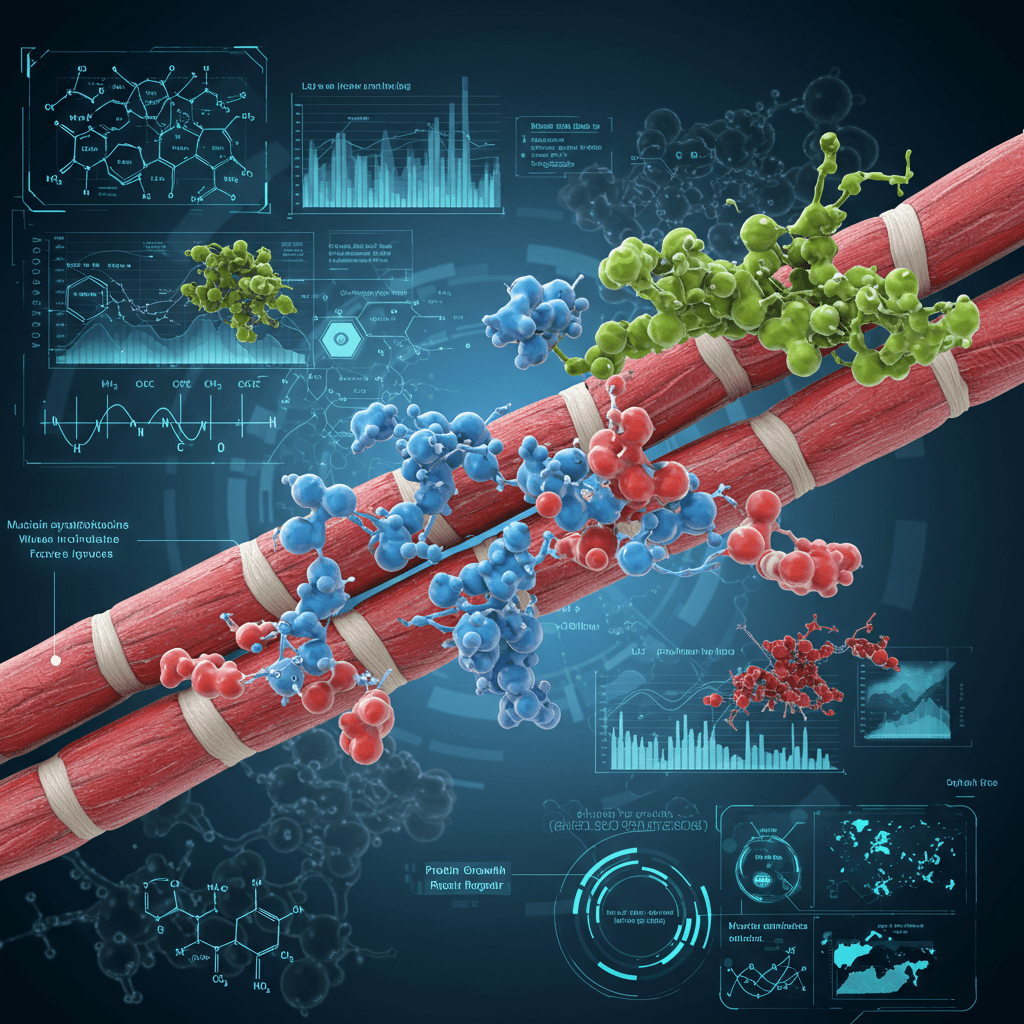
Proteins play a crucial role in maintaining and improving overall health, especially when it comes to muscle building and body function. Whether you are an athlete, a fitness enthusiast, or just someone looking to stay healthy, understanding the importance of protein is essential. In this article, we will explore the role of proteins in muscle growth, recovery, and overall health, as well as the best sources of protein and how much you really need.
Why Is Protein Important for Muscle Growth?
Protein is made up of amino acids, which are the building blocks of muscles. When you engage in physical activities, especially resistance training or weightlifting, tiny muscle fibers are broken down. Your body then uses protein to repair and rebuild these fibers, making them stronger and larger over time.
Key Functions of Protein in Muscle Growth:
- Muscle Repair and Recovery – After intense workouts, protein helps repair damaged muscle tissues and promotes faster recovery.
- Muscle Protein Synthesis (MPS) – This is the process where new muscle proteins are created, leading to muscle growth.
- Prevention of Muscle Loss – A sufficient protein intake helps prevent muscle loss, especially during weight loss or aging.
How Much Protein Do You Need?
Protein requirements vary based on age, activity level, and fitness goals. Here are general guidelines for daily protein intake:
- Sedentary adults: About 0.8 grams per kilogram of body weight
- Active individuals: Around 1.2 to 2.0 grams per kilogram
- Athletes and bodybuilders: Between 1.6 to 2.5 grams per kilogram
For example, if you weigh 70 kg (154 lbs) and are active, you should aim for 84–140 grams of protein per day.
Best Sources of Protein
Proteins can be found in both animal and plant-based foods. Here are some of the best sources:
Animal-Based Proteins:
✔️ Chicken breast
✔️ Lean beef
✔️ Fish (salmon, tuna)
✔️ Eggs
✔️ Dairy products (Greek yogurt, cottage cheese)
Plant-Based Proteins:
✔️ Lentils
✔️ Chickpeas
✔️ Quinoa
✔️ Tofu and tempeh
✔️ Nuts and seeds (almonds, chia seeds)
Both animal and plant-based proteins are beneficial, but animal proteins are considered “complete proteins” because they contain all nine essential amino acids. However, by combining different plant-based protein sources, you can still get all essential amino acids.
Protein Timing: When to Eat Protein?
To maximize muscle growth and recovery, it’s important to consume protein throughout the day:
- Morning: Kickstart your metabolism with a protein-rich breakfast.
- Before Workout: A light protein snack can provide energy and prevent muscle breakdown.
- After Workout: This is the most important time to consume protein, ideally within 30 to 60 minutes after exercise.
- Before Bed: A slow-digesting protein like casein (found in dairy) helps with overnight muscle recovery.
Can You Eat Too Much Protein?
While protein is essential, consuming too much can lead to potential issues such as:
- Increased stress on the kidneys (especially for those with pre-existing kidney problems)
- Digestive discomfort (bloating, constipation)
- Excess calories, which can lead to weight gain
The key is balance – make sure to get enough protein without overloading your body.
Conclusion: Protein for a Stronger, Healthier Body

Proteins are essential for muscle growth, recovery, and overall health. Whether your goal is to build muscle, maintain strength, or improve your general well-being, ensuring adequate protein intake is crucial. Focus on consuming high-quality protein sources, distributing your intake throughout the day, and combining it with a balanced diet and regular exercise.
